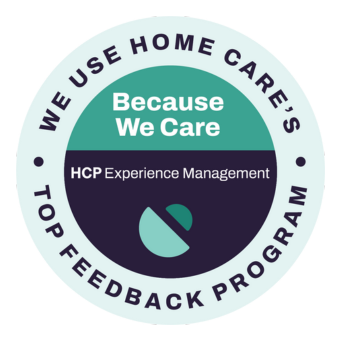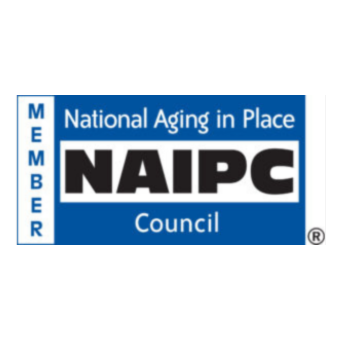For many families, being a co-caregiver with siblings for an aging parent isn’t a pleasant experience – for the siblings or the parent. Ill feelings from the past can bubble to the surface, making everyone feel stressed and uncomfortable.
However, for other families, having a sibling, or siblings, be a co-caregiver can pull a family closer together. The common bond of caring for a loved one can help heal old wounds and create a closeness they may have never experienced before.
If you’re a family caregiver for an aging parent and sharing those responsibilities with a sibling(s), here are five tips to help this be a positive experience for caregivers and the care recipient.
1. Communicate often.
Without consistent communication between siblings, the chances of misunderstandings and resentment increase. To prevent this, hold regularly scheduled family meetings. By talking together, in person or via conference call, you can discuss issues like living arrangements, care scheduling, finances, and legal matters.
2. Decide on roles.
Confusion will arise without clearly identifying who will do what, and one sibling or another can feel overburdened. Ideally, someone who lives close by can take Mom or Dad grocery shopping weekly, while a sibling who lives farther away can speak with healthcare providers about the care being provided. Roles and responsibilities should be clearly defined.
3. Bring in outside help.
Even with multiple siblings providing care, outside professional help can enhance the quality of care a loved one is receiving. For example, it may help everyone to have a professional caregiver come in occasionally and provide respite care so siblings can all take a breather at the same time and come back together rested and refreshed.
Outside organizations like Meals on Wheels can be valuable, keeping anyone from getting overloaded with meal preparation. Lawn and home maintenance services can also take pressure off of co-caregivers.
4. Use technology to work together.
Siblings can use their smartphones to coordinate their caregiving efforts seamlessly. There are many apps available that can streamline care, such as medication reminders and scheduling apps.
Regular communication via text and e-mail is also beneficial for each sibling to talk about their feelings about caregiving and how the care recipient is doing. Calls using video (Zoom, Skype, FaceTime, etc.) are especially beneficial since things like facial expressions and body language can help make it more transparent how people are feeling.
5. Be patient with each other.
Keep in mind that family caregivers are rarely trained in caregiving. However, they do their best, considering all the factors that can affect the amount of care they can provide, such as jobs, spouses, children, and their relationship history with their parents.
If you don’t feel a sibling is helping enough, speak gently and be patient with them. Be empathetic towards their situation and help them make adjustments if needed. Perhaps you can do something small for them that will help reduce their stress level, like watching their kids while they have a date night or dropping off dinner, which will help them be a better spouse, parent, and caregiver.
We Can Help With Being a Co-Caregiver
If you or your siblings need assistance caring for a senior loved one, we’re here for you. Our compassionate caregivers assist with many services, such as companionship care, personal care, dementia care, transportation, and much more.
Contact us today and schedule your free initial consultation. We’d love to get to know your family and design a care plan that will meet your senior loved one’s needs.












